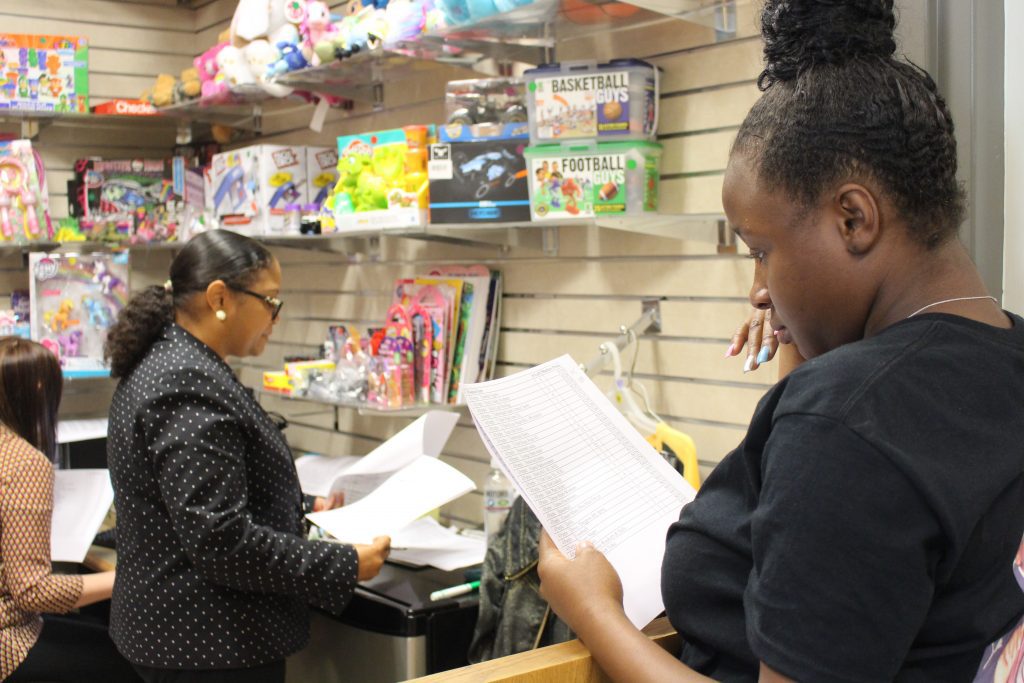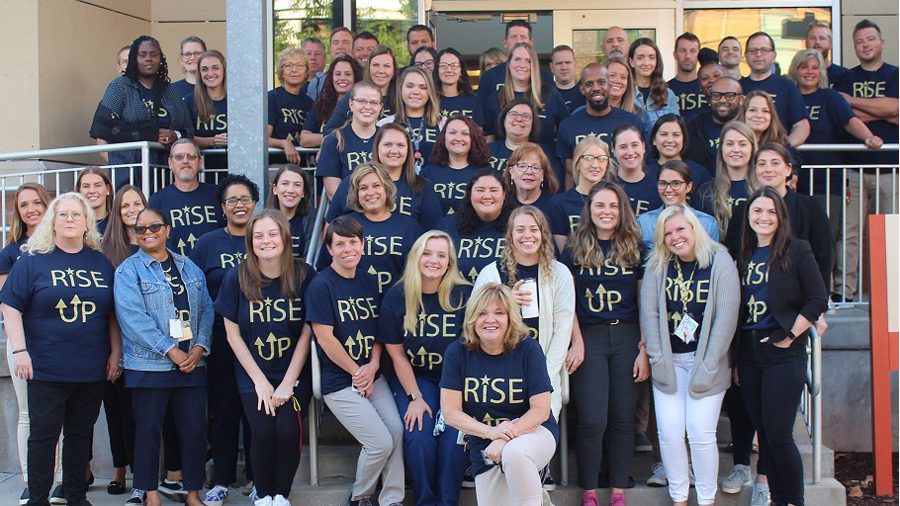At the Watson Institute’s Friendship Academy, our team of educators and specialists help students with severe emotional and behavioral challenges achieve their goals, academically and developmentally. At the beginning of last school year, Friendship implemented a school-wide Positive Behavioral Interventions and Supports (PBIS) program to encourage the use of positive behavior interventions and set consistent expectations for staff and students. The goal of the PBIS program is to create a safe and nurturing school environment.
What is PBIS?
Positive Behavioral Interventions and Supports (PBIS) is a nationally-recognized program with a focus on creating and maintaining a positive school environment for students and staff. By focusing on preventative behavioral supports with students, schools typically see a reduction in the need for disciplinary actions, which keeps students in their classrooms, engaged in learning.
Sophia Barrett, a special education consultant at the Watson Institute, works with schools across Western Pennsylvania to help them implement PBIS programs in their districts. Sophia trained staff at Friendship Academy for six months prior to the launch of their RISE PBIS program.
Sophia helped staff develop the rules and expectations around which the PBIS system would be built. Once they established the groundwork for the program, she walked them through implementation and guided them in the development of the activities and reinforcers they would use to encourage student participation during the program.
Friendship staff came up with “RISE” as the school’s PBIS motto, with “RISE” representing four of the program’s main goals: Respect, Integrity, Safety, and Engagement. Since its inception, staff have come up with several activities and programs to incorporate the RISE system into daily school routines.
Students at Friendship Academy range in age from 5 to 21 and are grouped into learning communities based on their grade (elementary, middle and high school). Educators in each learning community create and utilize developmentally appropriate lesson plans to teach their students the expectations for RISE, using fun activities such as Jeopardy and Bingo to encourage student participation.
Students worked with the teachers to create posters, now displayed prominently around the school, which outline the expected positive behaviors. Classroom expectations, for example, include using good manners, focusing on your task, using materials safely, and raising your hand to participate, while hallway expectations include maintaining personal space, using appropriate language, and getting to class on time.
Reinforcing Positive Behaviors with PBIS
Reinforcing positive behaviors is a key factor to keeping students engaged in the PBIS program. Staff at Friendship came up with numerous ways to recognize students who are following the RISE expectations, such as the “Caught on the RISE” ticketing system. Last year, staff at Friendship were provided with tickets that they could use to reward students they observed following the RISE expectations. It could happen in the hallways between classes, in the classroom or even during arrival or departure. They will continue to use the system this year.
The student practicing the positive behavior is awarded a ticket, signed by the staff member who witnessed the act. Students can turn their ticket in to be added to the Prize Board, which looks similar to a checkerboard. Once a row on the prize board is filled up, all of the students and staff members from that row receive a prize!
For the PBIS system to be effective, both staff and students need to be engaged in and “buy in” to the program. Offering positive reinforcement and incentives for participation helps promote engagement throughout the school.
Another way positive reinforcement has been incorporated into the PBIS program at Friendship is by connecting the incentives to the school’s token economy system.
Through the behavioral support system, students can earn “Watson dollars” that can be used to shop at the school’s market. The market is stocked with items of interest to the students including snacks, apparel, and personal items.

The 2019-2020 school year marks the start of the second full-year of implementation of the PBIS “RISE” program at Friendship Academy. To mark the kick off of the school year, Friendship staff ordered t-shirts for the first day of school that say, “RISE Up”, to remind students of the expectations and set the tone for a successful school year. Students at Friendship will also receive a RISE t-shirt that can be worn on designated days throughout the year to promote school unity and inclusion.
Learn more about the Watson Institute Friendship Academy, a special education school and partial hospitalization program for students with emotional and behavioral challenges.
Learn more about the PBIS program and how the Watson Institute helps school districts implement the program.
Cat Belasco is a Behavior Specialist at Friendship Academy and a Team Leader with the PBIS Program. Ms. Belasco earned a B.A. in Psychology with a Minor in Education Psychology from Indiana University of Pennsylvania and a M.Ed. in Early Intervention with a specialization in Autism from University of Pittsburgh. Ms. Belasco is a Board-Certified Behavior Analyst (BCBA) and also holds a certificate in Applied Behavior Analysis (ABA).
